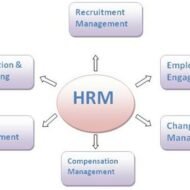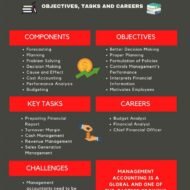Posted by Managementguru in Business Management, Change management, Human Resource
on Jun 25th, 2014 | 0 comments

Smith et al. describe management as “Making Organizations perform”. Management is concerned with Individuals who are delegated authority to manage others – Let me call them ‘People with Power’. Activities for achieving goals – ‘Real Action Plans’. A body of knowledge represented by theories and frameworks about people and organizations – ‘Policy Framework’. What do managers do? As we all know they are involved in general management functions like Forecasting Planning Organizing Motivating Co-ordinating Controlling Are you aware of the ‘hidden’ dimensions of a manager’s job? Modern management theories, although highlighting the complexity of the role, have yet to provide sufficient empirical research and advice into key areas that enable both managers and organizations to increase their effectiveness. For example Dealing competently with organizational politics (“You can ignore it, but it won’t go away” – This is how surveyed employees said they viewed office politics) Successfully managing change (Adaptability is about the powerful difference between adapting to cope and adapting to win) Controlling ethical issues and demands (It takes 20 years to build a reputation and five minutes to ruin it. If you think about that, you’ll do things differently.) Developing the role of women managers (Women can be better managers than men because they tend to be more conservative and do their homework. Men tend to take more risk without the research) Ensuring personal ‘survival’ and career success in organizations (A successful man is who lays a firm foundation with the bricks others throw at him.) Safeguarding personal health in a stressful environment (Manage stress before it manages you). How to achieve a more comprehensive view of development? Frameworks for setting, linking, and balancing individual and organizational objectives. Systems for identifying and selecting managers Structures to support, motivate and reward Plans to enable career progression Mechanisms to measure and evaluate performance. HRM and Management Development Human resource management as the name suggests is about the effective management of people in organizations. HRM involves the integration of people with business goals and strategies HRM views people as assets to be developed and utilized in a productive way rather than costs to be minimized or eliminated. The philosophies, ideologies, values and beliefs of management that operate and dominate within the organization have an impact on people management. The practices, policies and management styles that managers employ in their managerial role also align people’s behavior towards organizational goals. Senior managers determine the extent to which people are integrated into the organization’s strategic plans. They set the agenda and create the culture climate of prevailing values, attitudes and behavior. Middle and junior managers translate and ‘operationalize’ broader human resource strategies and policies. They give HRM its meaning and reality. It is their perfect management style and actual behavior that decided how the human resources is deployed and managed and thus what people experience as human resource management. The way managers themselves are managed and developed is a significant influencing factor in the way people are subsequently...

Posted by Managementguru in Financial Management, Project Management
on Feb 25th, 2014 | 0 comments

What is Budget Planning and Why is it Important? Quantification of Objectives in the form of Budgets Effective and efficient management of a business enterprise is facilitated, when a firm charts its course of action in advance. The management function also includes decision-making supported by various managerial techniques and tools that integrate the activities of the employees of the organization. One such technique is having a budget planned that which is essential for a healthy future. The systematic approach to profit planning is budgeting. The prime concern of budgeting is to make profits by regulating the flow of funds and allocating the controlling function to various responsibility centers. Don’t know how to start budget planning ? Do you need to know how to make a budget ? This infographic will provide personal budget categories you can use to help you categorize expenses for budgeting purpose. This may or will save you time, money, and effort. Getting Your Budget Approved What is a Budget? A budget is a comprehensive and coordinated financial plan, charted for a specific period of time in the future, but well in advance. It facilitates to compare the actuals with the standards established and review or revise the plans accordingly in case of any deviations or variances. A budget is a plan that is concerned not only about the resources of a firm, but also its operations. It involves the control and manipulation of relevant variables-controllable and non-controllable, and reduces the impact of uncertainty. Economic Constraints in Developing Countries Problems of unemployment, inflation and crude oil prices touching a dangerous high, these countries can offer only piecemeal measures to sustain the momentum of economic growth. Pic Courtesy: Avail Talking about organizations going for the master budget at the start of the year, it comprises budgets for various segments of the enterprise and it forms the primary step in budget planning. Master Budget The budget for a segment or department will not have much significance unless it is a part of the total budget-the master budget. If the budgets for various segments are not prepared jointly and in harmony with each other, the master budget will lose much of its importance and may even prove to be harmful in realizing the firm’s expectations. A budget is always expressed in financial terms, either in rupees, dollars or pounds, for operational purposes. Say, in a production budget, you talk about units of raw material and finished product. In a labor budget, you talk about men and labor hours. So there must be a common denominator, which can express all these variable quantities in a common language for the comprehensive budget to be meaningful. This purpose is solved by money, which undoubtedly serves as the common denominator. Budget Mechanism A budget is a mechanism to plan for the firm’s operations and activities. It allocates resources as well as responsibilities to different operational centers like, revenue, cost, profit and investment centres. Time dimension must also be added to a budget. For example, a production target of ten thousand units or a profit target of ten million dollars has no meaning unless and until it is related to a specific time period, in which these targets have to be met. A firm may have its long-range and broad objectives, such as maximum sales, maximum profits, customer satisfaction, social responsibilities, etc., But, to achieve these qualitative objectives, a firm has to quantify the same in the form of short-term objectives or goals with a time period precisely specified. A budget is basically a control technique which also facilitates to measure the performance of individuals on the basis of which, corrective action can be taken. The crux...

Posted by Admin in Accounting, Management Accounting
on Jan 29th, 2014 | 0 comments

Management accounting combines accounting, finance and management with the leading edge techniques needed to drive successful businesses. The process of preparing management reports and accounts that provide accurate and timely financial and statistical information required by managers to make day-to-day and short-term decisions






